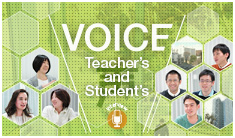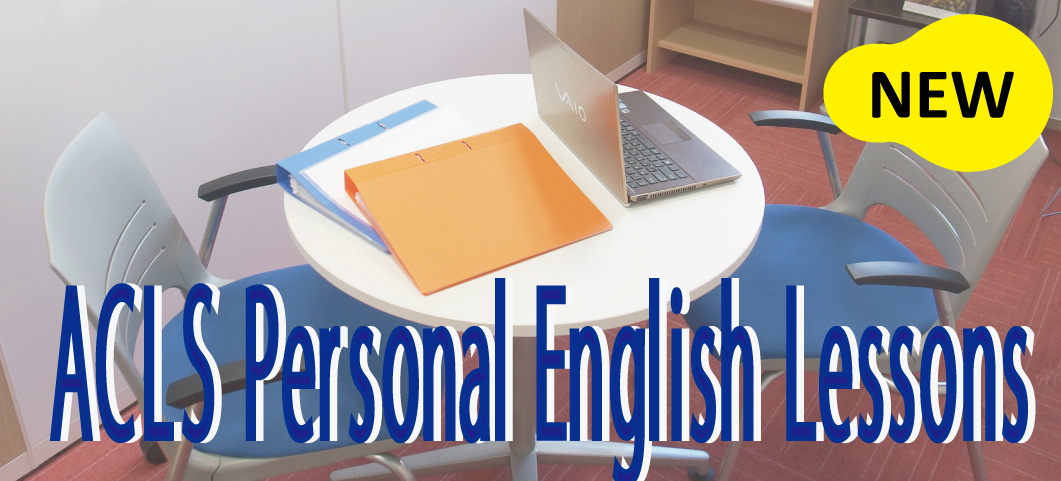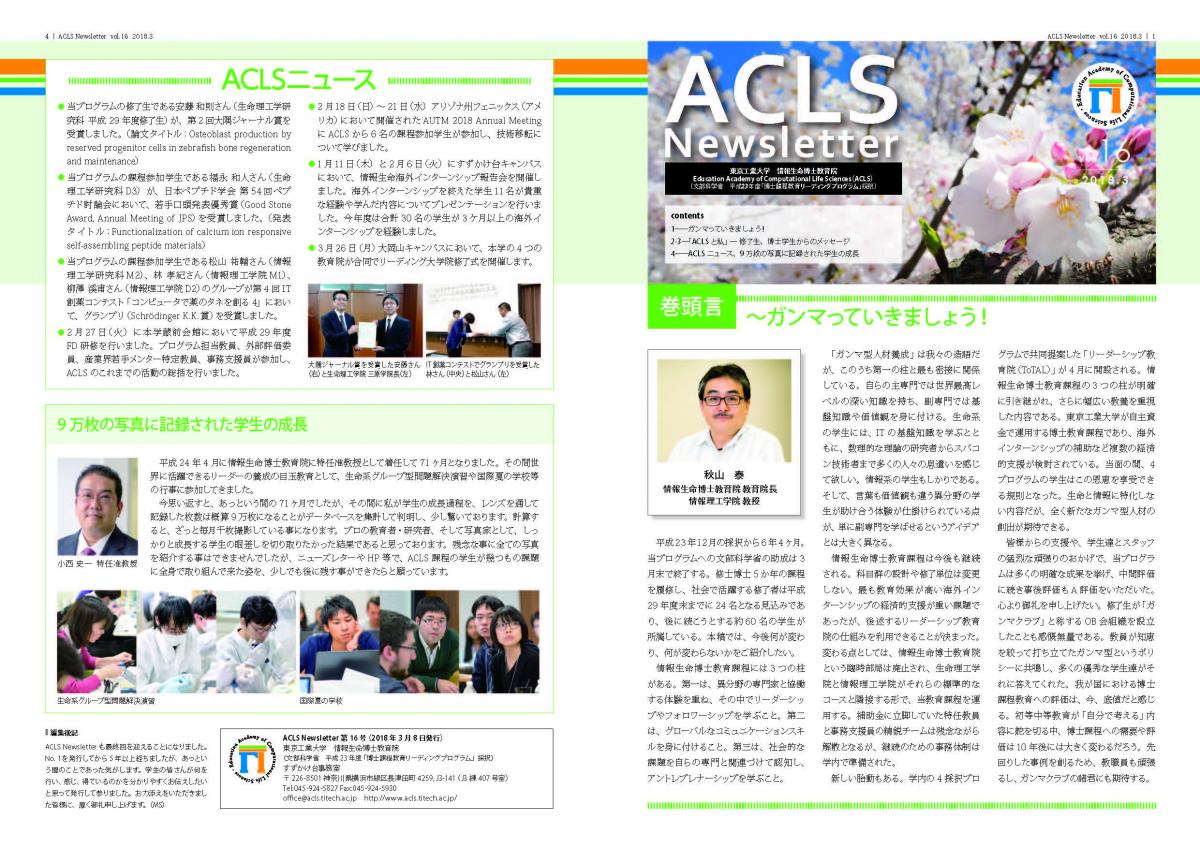- Home
- Teacher's and Student's voice
- Masahito Ohue / Shuji Suzuki
Masahito Ohue / Shuji Suzuki


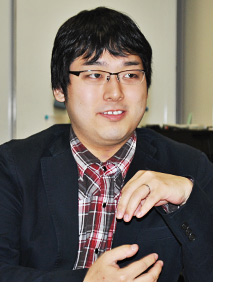 Ohue: My specialization is predicting the interactions of proteins using computers. The subject matter is from the life science field, but I make the predictions and analysis using computers without doing any experiments. However, I always had the thought that in order to get deeper into my research, I needed to know more about life science and about experiments.
Ohue: My specialization is predicting the interactions of proteins using computers. The subject matter is from the life science field, but I make the predictions and analysis using computers without doing any experiments. However, I always had the thought that in order to get deeper into my research, I needed to know more about life science and about experiments.
While I was pursuing my doctoral studies, I heard about ACLS, and I thought "this could be useful for me". Taking seminars and labs in life science subjects was definitely something I could not do in my own department. Therefore, I decided to join ACLS. I was involved even before the official program began, so I suppose you could say I was in Intake 0.
Suzuki: I decided to join the program for reasons that are similar to Masahito. My specialization is the homology search of amino acid sequences. As someone who handles biological information, I always wondered "How do they produce this data?" I had heard about it, but had never seen it or done it. I thought it was important to learn "how far I can trust the data that I am handling" and to study about the origin of the data obtained from real biological samples.
In the ACLS curriculum I found exactly what was necessary to complete my theoretical knowledge. ACLS offered real practical exercises that would strongly support my research background, then I decided to join.

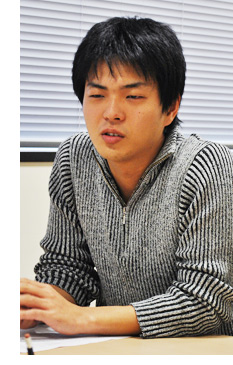 Suzuki: The ACLS program started at the same time as I joined the doctoral course. So I was an official member of the first intake of students. I was completely new to it; therefore, as I was signing up, even though I was listening to everything the instructors were telling me, I kept looking at the curriculum and thinking, "Can I really do this?. That's the honest truth. I thought it would be useful for me, but in reality I wasn't entirely certain.
Suzuki: The ACLS program started at the same time as I joined the doctoral course. So I was an official member of the first intake of students. I was completely new to it; therefore, as I was signing up, even though I was listening to everything the instructors were telling me, I kept looking at the curriculum and thinking, "Can I really do this?. That's the honest truth. I thought it would be useful for me, but in reality I wasn't entirely certain.
Ohue: I was the opposite. I didn't feel a lot of anxiety. I felt that I would not be able to make progress in my research, if I didn't know what people were talking about in the life science fields, so I thought I had to study them properly. But in an information science research laboratory, I didn't know how to go about it, even though it was something I would have to study. If I joined ACLS, I had a greater hope that I could progress further. I thought it was a good opportunity.
Suzuki: I was really anxious about how it was going to turn out, but the curriculum looked appealing. I hoped that I could gain the knowledge of the life science curriculum and broaden the range of my research.
Ohue: I feel that when I actually joined, the things I had hoped for mostly tended to be "exactly right". It was a good opportunity for me, and I was able to broaden my research in the way I envisioned. The many things I learned from life science academic conferences and the like helped me a lot, and as a consequence, I have recently been fortunate enough to receive the Ikushi Prize from the Japan Society for the Promotion of Science, which is a major prize for a doctoral student. I think the opportunity to interact with so many other different people was the food that fueled my own activities.

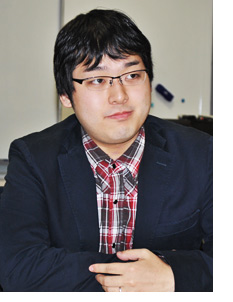 Suzuki: I did think there were different ways of thinking and feeling about things on the life science side. In particular, I felt the permissible range of data was different. Data obtained by the same method could be very different, and how much of that difference was permissible was something I was really unsure about at first. Also I thought there were differences in the way of evaluating the data too. When I heard presentations at academic conferences, I got the sense that qualitative evaluations were more common among life sciences people. In information science, I think it is the case that quantitative evaluation is more common, so I felt that was a fairly large difference.
Suzuki: I did think there were different ways of thinking and feeling about things on the life science side. In particular, I felt the permissible range of data was different. Data obtained by the same method could be very different, and how much of that difference was permissible was something I was really unsure about at first. Also I thought there were differences in the way of evaluating the data too. When I heard presentations at academic conferences, I got the sense that qualitative evaluations were more common among life sciences people. In information science, I think it is the case that quantitative evaluation is more common, so I felt that was a fairly large difference.
Ohue: I myself didn't actually find that big a difference. The goal of the information science people is to elucidate physical phenomena. In order to do that they will use any means possible without discrimination. I think that is where the difference in methods of conducting research and in the approach to the subject comes in. However, everybody who joins ACLS with the aim of studying life science should have the same goal of "elucidating physical phenomena", so I think we should also use anything that is there to be used, in the same way.
Suzuki: That point surprised me, but at the same time I felt it was a really fresh idea. I think that studying together with the life science people, has really produced changes in the way I think and feel about my research.

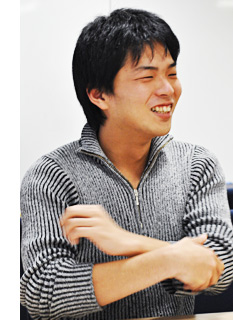 Suzuki: When you join ACLS, you have to take a certain amount of units, so I did think "The burden on me is getting heavier, isn't it?” The transit time from Ookayama, where I normally do my research, to Suzukakedai, where ACLS is mainly based, was also a concern. When I actually took the classes I'd enrolled in, there were definitely a lot of challenges; however, the burdens were quite light, compared to undergraduates. At ACLS you need to complete 20 units over 3 years. I was able to complete almost all of them when I was in my second year of the doctoral course.
Suzuki: When you join ACLS, you have to take a certain amount of units, so I did think "The burden on me is getting heavier, isn't it?” The transit time from Ookayama, where I normally do my research, to Suzukakedai, where ACLS is mainly based, was also a concern. When I actually took the classes I'd enrolled in, there were definitely a lot of challenges; however, the burdens were quite light, compared to undergraduates. At ACLS you need to complete 20 units over 3 years. I was able to complete almost all of them when I was in my second year of the doctoral course.
Ohue: For the lectures held at Suzukakedai Campus, it's mostly set up in an environment where it's possible to take them by distance learning, so I didn't think the time management was that difficult. Of course, to take the practical exercises, I had to commute there every day, but it was just for two weeks.
Suzuki: Also, by providing feedback from the student side to ACLS, environmental improvements have occurred as a result. The first year that I took part, there wasn't much in the way of distance learning, but as a result of student demand, it was introduced the next year and our burden was alleviated.
Ohue: I had the feeling that while taking lectures, I was providing feedback and helping them to adjust the curriculum at the same time. I was creating it together with the teaching staff; we were making it take shape. This flexible aspect is there as well, so I never considered taking part in ACLS to be a heavy burden myself.

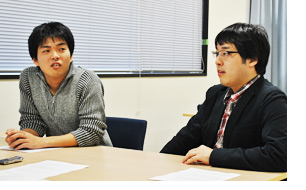 Ohue: The " Creative Collaboration Works Ⅱ". Students from information science and life science have to form one team together and work on a common theme. It is one of the practical classes that are the standout special features of ACLS; but when I actually tried doing it, I found it was interesting. We worked on two themes, but experiencing the experiments that the life science people apparently do every day, was a really an eye-opening experience.
Ohue: The " Creative Collaboration Works Ⅱ". Students from information science and life science have to form one team together and work on a common theme. It is one of the practical classes that are the standout special features of ACLS; but when I actually tried doing it, I found it was interesting. We worked on two themes, but experiencing the experiments that the life science people apparently do every day, was a really an eye-opening experience.
Suzuki: I did a practical exercise to produce the DNA sequence data I use in my research, and I really felt a lot of respect for the researchers who do those experiments for me. Because my own attempts were a failure, it was totally not data that could be analyzed.
Ohue: One more thing that you could say was a standout feature I guess was the "Summer School". Similar events are held by other universities and academic societies, but the amazing thing about ACLS is that it is held overseas. (The 2013 event was held in London). The experience of actually going overseas and having academic discussions and interacting with overseas researchers and students is unique. I felt it was a wonderful event, widening the stage for the activities of people who take part.
Suzuki: Also there are the language courses as well. In particular the Global Writing Course was useful.
Ohue: The Global Communication Course was useful for me. With one teacher to about five students, in addition to daily conversation, we learned things that are essential if we are going to do science well, such as "How to ask questions at presentations", "Speaking Techniques for Academic Presentations", and so on.

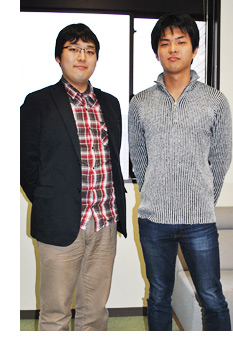 Suzuki: I want to conduct research at a company, so I am interested in going into industry. Originally I thought that going from the computer science world into bio-informatics (= biological information science) was quite unusual. I think information science research will proceed by considering what is necessary to solve problems in the real world. In the world of bioinformatics, the inevitability of thinking this way is high. By putting myself in such a place, I feel that I am "contributing to society" and that increases my motivation to do research. With this thought in mind, I have progressed in the world of bio-informatics and joined ACLS.
Suzuki: I want to conduct research at a company, so I am interested in going into industry. Originally I thought that going from the computer science world into bio-informatics (= biological information science) was quite unusual. I think information science research will proceed by considering what is necessary to solve problems in the real world. In the world of bioinformatics, the inevitability of thinking this way is high. By putting myself in such a place, I feel that I am "contributing to society" and that increases my motivation to do research. With this thought in mind, I have progressed in the world of bio-informatics and joined ACLS.
Through my experience at ACLS of knowing other fields and collaborating with people from other fields, I think I would like to try doing various things in a different boundary field, not only bio-informatics, but another boundary field. By going into a corporation, I think that I can come into contact with people from various boundary fields.
Ohue: The field of bioinformatics came to become known widely and various companies are starting to enter into this field. However, because of the expansion of the possibilities for study in the information sciences and the scale of the technological revolution in the last few years, I feel it is a field where the "seeds" of industrialization are necessary. After I receive my degree, I would like to stay in the academic world for a while, and keep unearthing those seeds. Knowing about other fields, aiming for fusion / interdisciplinary research, without thinking about it as another field, is the way to make new discoveries … that was an image that I already had. By joining ACLS, that image has become stronger.
(Note)The contents of this article are accurate as of the time the interview was conducted in February 2014.







